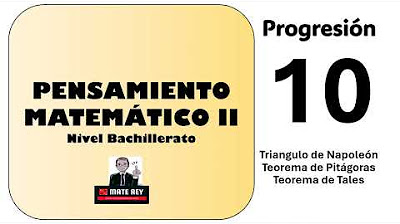Getting Started with Framework Thinking - Frameworks in Books 📚
Summary
TLDRThe video script discusses the importance of framework thinking over IQ in problem-solving and clarity. It explains that frameworks, simplified representations of the world, help categorize and simplify information for easier problem-solving. The speaker suggests that instead of memorizing frameworks, one should actively identify and collect them based on specific situations, leveraging our brain's natural tendency to categorize. The script also touches on the brain's organization of information through sequential and relational memory, and the three types of mental categories: visual, functional, and conceptual for specific situations.
Takeaways
- 🧠 The speed and clarity of thinking are more about how individuals actively notice and structure information rather than their IQ.
- 📚 Framework thinking is a method used by successful individuals and organizations to simplify and categorize information for effective problem-solving.
- 🔍 Frameworks are simplified representations that help us understand complex systems by breaking them down into key components.
- 📈 Learning frameworks can be enhanced by understanding how our brains naturally organize information, such as through sequential and relational memory.
- 📖 Books can be a source of learning frameworks, but merely collecting them isn't enough; applying them in real-life situations is crucial.
- 🔑 Our brains are wired for relational memory, which is why connecting ideas through methods like the Zettelkasten note-taking system can be more effective.
- 🌈 There are three main types of mental categories: visual, functional, and conceptual, which help us categorize and simplify the world around us.
- 🎯 To leverage frameworks effectively, one must actively identify existing frameworks and organize them according to specific situations rather than arbitrary categories.
- 📝 It's important to collect and tag frameworks in a way that aligns with how our brains naturally categorize information, which can be aided by external tools like pen and paper or digital note-taking apps.
- ✍️ Ultimately, the goal is to not just memorize frameworks but to contextualize and apply them in a way that leads to the creation of new, personalized frameworks.
Q & A
What is the key difference between people who think fast and clearly and those who don't, according to the script?
-The key difference is not IQ, but how they actively notice and structure information to understand the world.
What are frameworks and why are they important for problem-solving?
-Frameworks are simplified representations of how the world works, categorized into key levers, which make problem-solving easier and clearer.
How do consulting firms and big tech companies like Apple and Google utilize frameworks?
-Consulting firms and companies like Apple and Google use frameworks for structured problem-solving and teach their employees to use them.
What is the role of Charlie Munger and Warren Buffett in promoting framework thinking?
-Charlie Munger and Warren Buffett are big proponents of thinking in mental models, of which frameworks are a crucial component.
How does the script suggest leveraging frameworks to think faster and with more clarity?
-By following the way our brain organizes information, such as using sequential and relational memory.
What are the two ways the brain organizes information for retrieval mentioned in the script?
-The two ways are sequential memory and relational memory.
Why is the Zettelkasten method of note-taking recommended in the script?
-The Zettelkasten method connects different ideas, aligning with how our brain naturally organizes information through relational memory.
What are the three main types of mental categories identified by scientists, as discussed in the script?
-The three main types of mental categories are visual, functional, and conceptual categories for a specific situation.
How does the script suggest applying frameworks to real-life situations?
-By actively identifying existing frameworks and organizing them into categories that fit specific situations rather than arbitrary subject matters.
What are the two simple steps suggested in the script for effectively using frameworks?
-The two steps are to actively identify existing frameworks and to collect them in a way that fits specific situations, tagging ideas with where they might be used.
Why is it important to contextualize frameworks when learning from books like 'The Great Thinkers'?
-Contextualizing frameworks helps in understanding how to apply them in real-life situations, rather than just memorizing them under arbitrary categories.
Outlines

Cette section est réservée aux utilisateurs payants. Améliorez votre compte pour accéder à cette section.
Améliorer maintenantMindmap

Cette section est réservée aux utilisateurs payants. Améliorez votre compte pour accéder à cette section.
Améliorer maintenantKeywords

Cette section est réservée aux utilisateurs payants. Améliorez votre compte pour accéder à cette section.
Améliorer maintenantHighlights

Cette section est réservée aux utilisateurs payants. Améliorez votre compte pour accéder à cette section.
Améliorer maintenantTranscripts

Cette section est réservée aux utilisateurs payants. Améliorez votre compte pour accéder à cette section.
Améliorer maintenant5.0 / 5 (0 votes)






